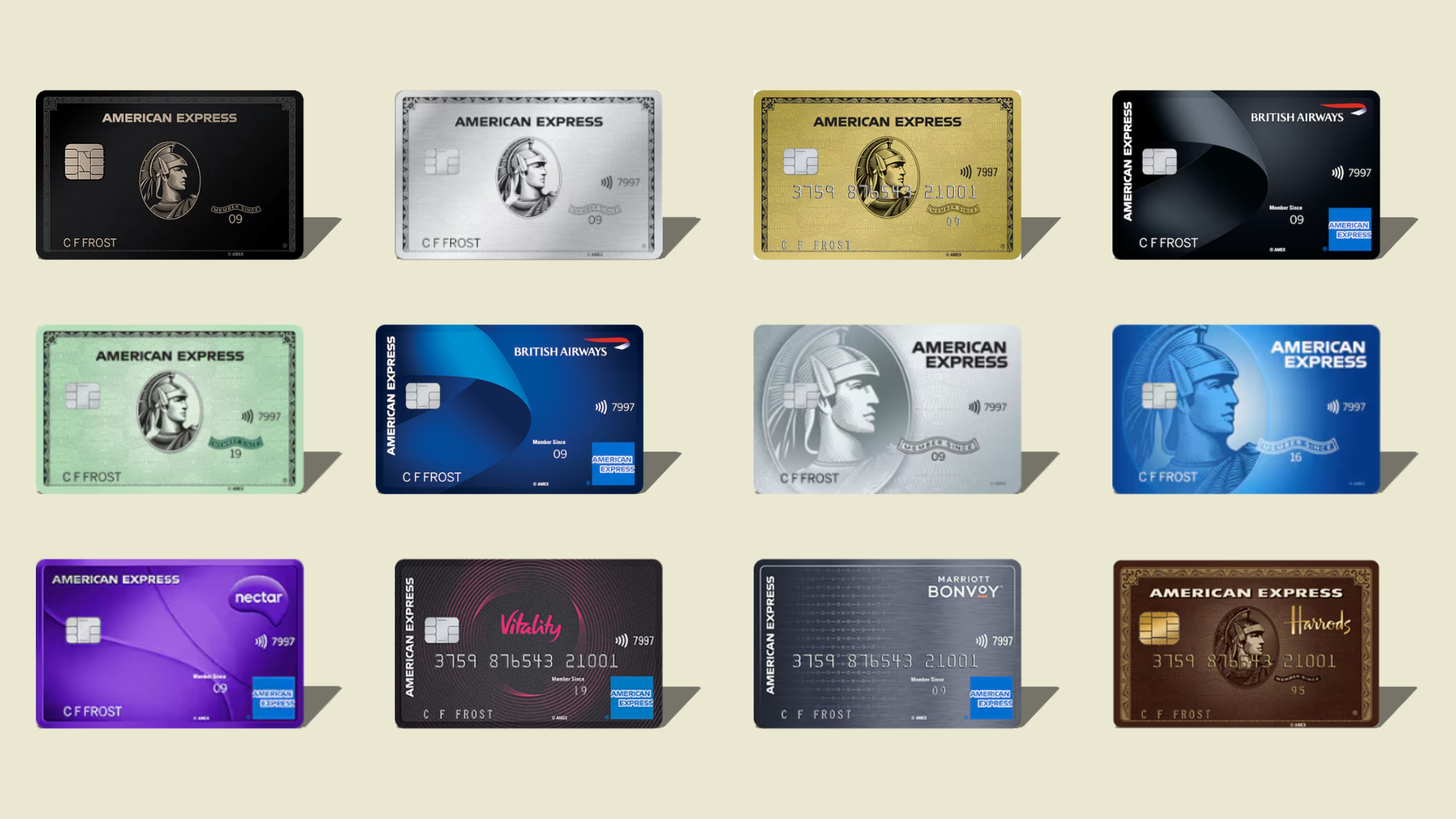Why it sometimes makes sense to buy using your credit card
There are several reasons to consider paying with a credit card, says Ruth Jackson-Kirby. Here are just a few.


Get the latest financial news, insights and expert analysis from our award-winning MoneyWeek team, to help you understand what really matters when it comes to your finances.
You are now subscribed
Your newsletter sign-up was successful
Want to add more newsletters?

Twice daily
MoneyWeek
Get the latest financial news, insights and expert analysis from our award-winning MoneyWeek team, to help you understand what really matters when it comes to your finances.

Four times a week
Look After My Bills
Sign up to our free money-saving newsletter, filled with the latest news and expert advice to help you find the best tips and deals for managing your bills. Start saving today!
The days of bumper cashback offers or fantastic rewards with your credit card are long gone. But there are still several good reasons to pay with plastic. One is the protection you receive thanks to Section 75 of the Consumer Credit Act. Pay for something costing between £100 and £30,000 on a credit card and the card provider is as liable as the seller if something goes wrong.
Credit-card firms are currently swamped with Section 75 claims, thanks to Thomas Cook. “The 178-year-old travel agent went into administration in September, prompting thousands of customers who had booked trips on credit cards to submit refund claims,” notes Sam Barker in The Daily Telegraph.
You can put a claim in with your credit-card provider if the thing you purchased never arrives or isn’t what it should have been. For example, you could claim for flights you bought if the airline goes bust, or a car that breaks down days after you bought it. You even get protection for the whole cost if you only paid the deposit on your credit card.
MoneyWeek
Subscribe to MoneyWeek today and get your first six magazine issues absolutely FREE

Sign up to Money Morning
Don't miss the latest investment and personal finances news, market analysis, plus money-saving tips with our free twice-daily newsletter
Don't miss the latest investment and personal finances news, market analysis, plus money-saving tips with our free twice-daily newsletter
Boost your credit rating
Another reason to put some of your spending on a credit card is that it improves your credit rating. It is a myth that a person who has never borrowed has the best credit rating. Lenders want to see that you are a reliable borrower; if you’ve never borrowed, they don’t know you’ll pay them back.
Using a credit card and repaying the balance in full each month – or at least never missing a minimum payment – will bolster your credit rating.
There are also financial benefits to spending on a credit card. If you can’t afford to buy something outright then an interest-free credit card is still the cheapest way to borrow. For example, Sainsbury’s Bank is offering 27 months of 0% interest for new spending. Just make sure you clear the debt before the interest-free period expires, otherwise you’ll end up paying 20.9% interest.
Divide your debt by the length of the interest-free period and then set up a direct debit for that amount, so you don’t miss a payment and clear the debt in time. “You need to make at least the minimum payment each month or you may lose the 0% deal and be charged a fee,” says Sarah Coles, personal finance analyst at Hargreaves Lansdown, in The Financial Times.
If you don’t need to borrow, then get paid to shop with a cashback credit card. The return on these cards isn’t as good as it once was, but it is still reasonable. The top-paying card is the Amex Platinum Cashback credit card. It has a £25 annual fee but a 5% cashback rate for the first three months; the rate then falls to 1.25%.
But make sure you clear your balance in full each month, otherwise the 22.9% APR interest will quickly cost you more than you are earning in cashback.
Get the latest financial news, insights and expert analysis from our award-winning MoneyWeek team, to help you understand what really matters when it comes to your finances.

Ruth Jackson-Kirby is a freelance personal finance journalist with 17 years’ experience, writing about everything from savings accounts and credit cards to pensions, property and pet insurance.
-
 Ayatollah Ali Khamenei: Iran’s underestimated chief cleric
Ayatollah Ali Khamenei: Iran’s underestimated chief clericAyatollah Ali Khamenei is the Iranian regime’s great survivor portraying himself as a humble religious man while presiding over an international business empire
-
 'AI will change our world in more ways than we can imagine'
'AI will change our world in more ways than we can imagine'Interview Rob Arnott of Research Affiliates talks to Andrew Van Sickle about the AI bubble, the impact of tariffs on inflation and the outlook for gold and China
-
 What are British Airways Amex companion vouchers, and how do they work?
What are British Airways Amex companion vouchers, and how do they work?American Express customers with British Airways credit cards can effectively double the value of their Avios points by using a companion voucher. We look at what they are, and how you can use them.
-
 American Express introduces 'Plan It' payment instalment option
American Express introduces 'Plan It' payment instalment optionNews Amex users can now split parts of their credit bill into further instalments. Is it worth it?
-
 Which is the best American Express credit card?
Which is the best American Express credit card?American Express credit cards can help you earn cashback or reward points on everyday spending, but which card is the best for you? We compare the options
-
 Act now to bag NatWest-owned Ulster Bank's 5.2% easy access savings account
Act now to bag NatWest-owned Ulster Bank's 5.2% easy access savings accountUlster Bank is offering savers the chance to earn 5.2% on their cash savings, but you need to act fast as easy access rates are falling. We have all the details
-
 Moneybox raises market-leading cash ISA to 5%
Moneybox raises market-leading cash ISA to 5%Savings and investing app MoneyBox has boosted the rate on its cash ISA again, hiking it from 4.75% to 5% making it one of top rates. We have all the details.
-
 October NS&I Premium Bonds winners - check now to see what you won
October NS&I Premium Bonds winners - check now to see what you wonNS&I Premium Bonds holders can check now to see if they have won a prize this month. We explain how to check your premium bonds
-
 The best packaged bank accounts
The best packaged bank accountsAdvice Packaged bank accounts can offer great value with useful additional perks – but get it wrong and you could be out of pocket
-
 Bank of Baroda closes doors to UK retail banking
Bank of Baroda closes doors to UK retail bankingAfter almost 70 years of operating in the UK, one of India’s largest bank is shutting up shop in the UK retail banking market. We explain everything you need to know if you have savings or a current account with Bank of Baroda